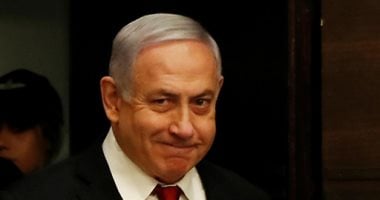Inside Israel, anger erupted over the Israeli occupation government’s decision to militarily control Gaza City, with some fearing this step could cost the hostages their lives. Protests against Benjamin Netanyahu’s government increased, demanding an end to the war on Gaza and the return of hostages in a comprehensive deal. These demands led hostage families to call for a general strike on August 17 to pressure the occupation government, a call supported by opposition leader Yair Lapid. Groups representing hostage families and families of killed soldiers called for the strike to protest the ongoing war and the government’s plan to militarily control Gaza City, fearing it will endanger hostages and cause more casualties among the occupation army. The planned strike, supported by prominent opposition figures, is organized by the October Council representing families affected by the October 7 attack.
However, it was unclear if the main organization representing families, the Forum of Prisoners and Missing Families, would support the strike, while the main labor union, Histadrut, said it would stay on the sidelines. These developments followed days after the occupation government voted to seize the densely populated Gaza City, despite army objections that the move would endanger prisoners and troops unnecessarily and deepen the humanitarian crisis in Gaza. At a press conference in Tel Aviv, opposite the Kiryat military base housing the military headquarters and Ministry of Defense, organizers urged private companies, organizations, labor unions, and citizens to take a day off and stop the economy.
Riot Risht Edri, mother of a victim in the October 7 attack, said: “We will all stop next Sunday and say: Enough, stop the war, bring back the hostages, the matter is in our hands.” Anat Angrist, mother of hostage Matan Angrist, condemned the decision to occupy Gaza City, saying it would endanger those still in captivity. The strike call lacks support from the powerful Histadrut union after a Tel Aviv court last year prevented it from striking to pressure the government for a prisoners’ deal and ceasefire in Gaza, describing it as political rather than labor-related. Histadrut chairman Arnon Bar-David was scheduled to meet hostage families on Monday at their request to involve his organization in the strike. According to an unconfirmed report from Channel 12, Histadrut has already informed organizers it will not participate.
Yaniv Levy, Histadrut spokesman, told Ynet: “At this stage, Arnon believes the strike does not help the campaign or alleviate families’ suffering.” He added that a Histadrut strike “will not achieve the goal.” He said, “We will see how we can help,” but emphasized that “strike is a means, not an end, when there are problems,” and currently, there will be no general strike. Opposition leader Yair Lapid expressed support for the strike, posting on X that the hostage families’ call to shut down the economy is justified and worthy of attention, adding: “We will continue to stand with them.” Similarly, Yair Golan, head of the Left Democrats party, supported the strike, calling on “all Israeli citizens” to participate, arguing it is impossible to continue normal life while hostages are in Gaza.
The idea of a general strike was raised Saturday evening when tens of thousands participated in protests across the country against the decision to occupy Gaza City, urging the government to reach a comprehensive ceasefire agreement to end the war and secure the release of all hostages. Before the strike, the security cabinet approved Netanyahu’s proposal to control Gaza City, defying army warnings that the operation endangers remaining hostages and risks causing a humanitarian disaster for its residents.













Recommended for you
Talib Al-Rifai Chronicles Kuwaiti Art Heritage in "Doukhi.. Tasaseem Al-Saba"
Exhibition City Completes About 80% of Preparations for the Damascus International Fair Launch
Unified Admission Applications Start Tuesday with 640 Students to be Accepted in Medicine
Egypt Post: We Have Over 10 Million Customers in Savings Accounts and Offer Daily, Monthly, and Annual Returns
His Highness Sheikh Isa bin Salman bin Hamad Al Khalifa Receives the United States Ambassador to the Kingdom of Bahrain
Al-Jaghbeer: The Industrial Sector Leads Economic Growth